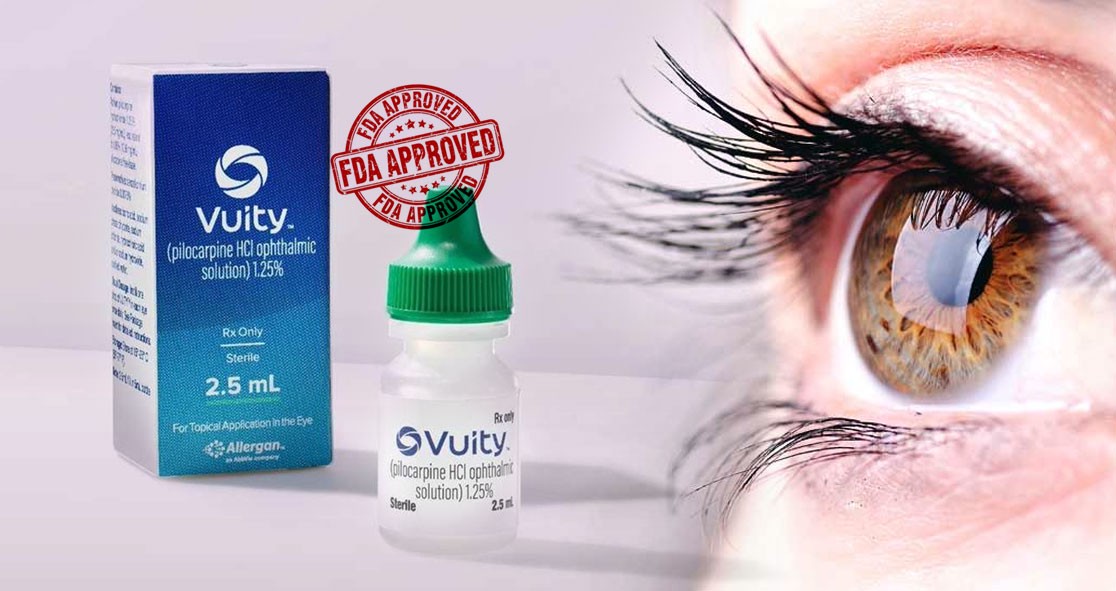Last week, AbbVie’s Allergan announced that the Food and Drug Administration (FDA) approved the use of VUITY, the company’s unique treatment for presbyopia, according to BioSpace.
The FDA’s approval made VUITY the first and only eye drop to treat presbyopia, a condition characterized by the gradual loss of the eye’s ability to focus on nearby objects.
Dr. Michael Severino, Vice Chairman and President of AbbVie, said, “Most adults cope with presbyopia, or difficulty with near vision, as we age. Beginning around the age of 40, many find themselves using reading glasses, holding text further away, or even increasing the font size and lighting on screens to try to see more clearly.”
“We are proud to offer VUITY as a first-of-its-kind once-daily eye drop that we believe will change the way people and their eye doctors approach presbyopia,” he added. “The FDA approval of VUITY exemplifies our continued pursuit of innovative new treatments that push the boundaries of what’s possible in eye care.”
Presbyopia affects millions of adults aged 40 and above. Despite being one of the most common eye conditions, the only treatment options before VUITY were mechanical supports such as glasses, bifocals, and contact lenses.
Now, VUITY offers patients a prescription treatment that temporarily relieves blurry vision, one of the symptoms of presbyopia.
The eye drop works within 15 minutes of application. It uses a specialized formula that combines pilocarpine, a well-established ocular therapeutic, along with Allergan’s propriety pHast technology.
During the clinical studies, patients who used VUITY once a day were found to have improved vision for up to six hours on day 30, according to BioSpace.
Dr. George Waring, the principal investigator of the studies, said, “I am particularly encouraged by the rapid onset of action and duration of efficacy for VUITY to improve near and intermediate vision without impacting distance vision with one drop daily, particularly for those with mild to moderate presbyopia.”
Patients who used the eye drops reported no serious adverse effects. However, some experienced common side effects such as headaches and eye redness.





















